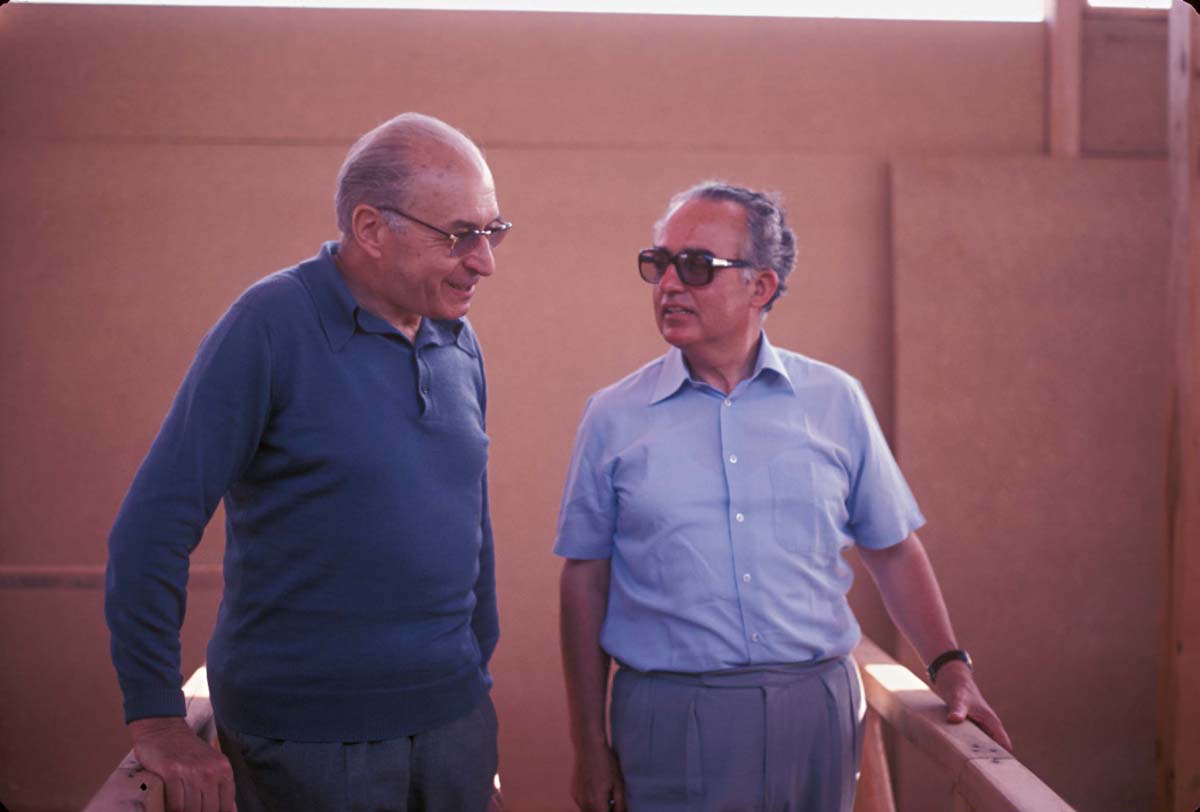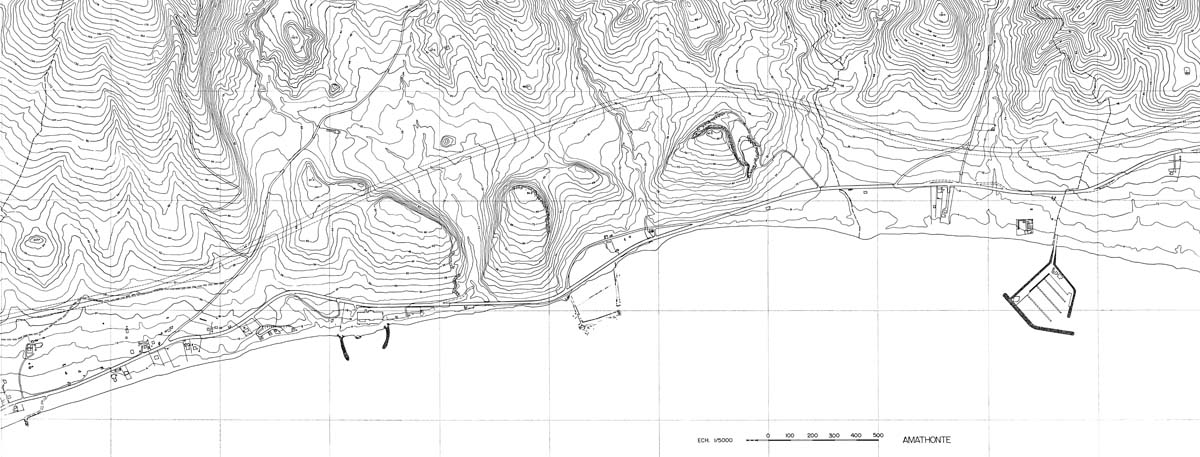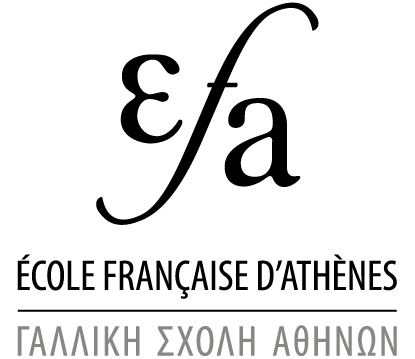The history of the relations between the French School at Athens and Cyprus has been evoked time and time again: overlooked during the second half of the 19th century, contact between the institution and the island of Aphrodite grew more intense under the direction of Théophile Homolle who entrusted Paul Perdrizet with the job of leading a study trip to Larnaca, Lapithos and Amathus. The First World War put an end to this kind of surveying, largely epigraphic, and we had to wait until the end of the 1960s before the Department of Antiquities proposed the area with the site of Amathus to the French School for investigation, terrain that had been coveted for years by a number of institutions and foreign universities.

Pierre Amandry and Vassos Karageorghis, 1979 (F. & A. Hermary / Archives EFA, Y.2556)
Vassos Karageorghis who was at that time Director of the Department wrote in this sense to Pierre Amandry as early as 1969, emphasizing the exceptional importance we could hope to gain from the exploration and excavation of Amathus, “of a significance comparable to that of Salamis as much for Hellenistic as for Oriental archaeology”. Four years had to pass before the French School agreed to honor this proposition: budgetary restrictions and some reservations about committing itself to a course of systematic exploration of a site of such a massive scale entailed lengthy negotiations in which prominent political players would necessarily intervene. His Grace Archbishop Makarios, the successive ambassadors posted to Nicosia or to Paris, the ministers of Foreign Affairs and of National Education underscored the scientific relevance, and more still the political pertinence, of the case of Amathus.
Topographic map of the Amathus area (H. Michailidou, B. Mouannes / Archives EFA, 12984)
A first campaign of prospecting and topographical surveys was conducted under the guidance of Pierre Aupert. According to the terms used by of the Director of the French School at Athens, this mission should not constitute a definitive commitment. It was all a question of funding!
The military intervention that occurred in the summer of 1974 and the long-lasting occupation by Turkish troops in the north part of the island where three French missions were established (Salamis, Enkomi and Cape Apostolos Andreas), brutally brought about a reconfiguration of archaeological activities at Cyprus. The first excavation at Amathus occurred in 1975. Since then, the fieldwork of the French School at Athens continues at Amathus under the favorable auspices of the Department of Antiquities.
L. Thély, trans. A.M. Schroth-Daskalakis
